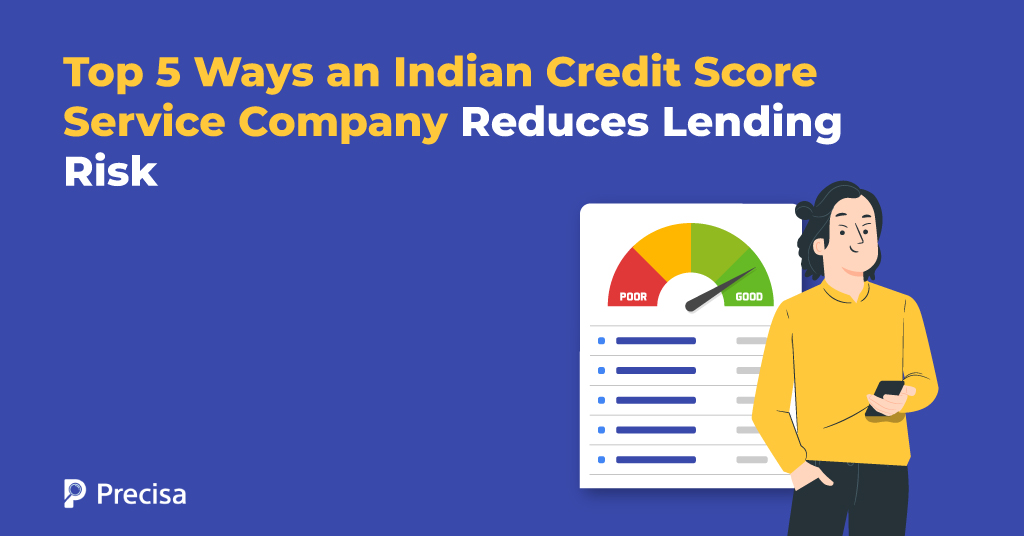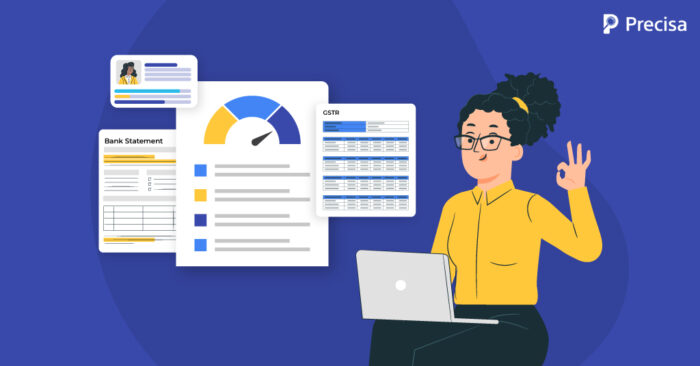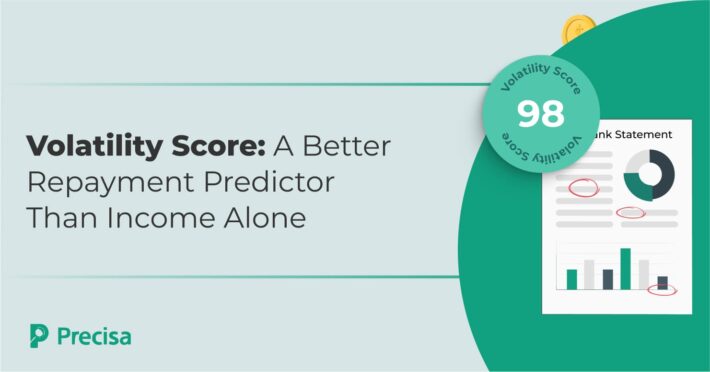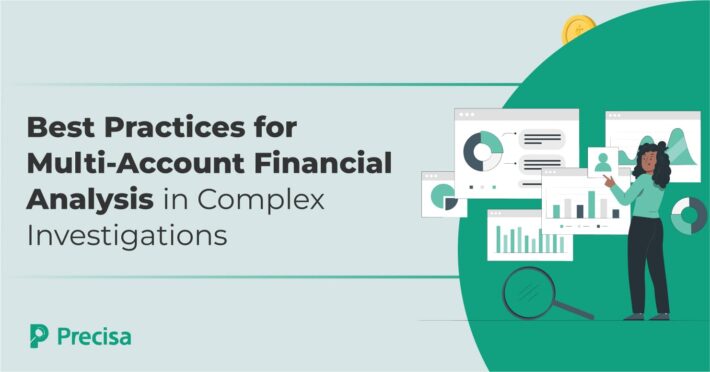Top 5 Ways an Indian Credit Score Service Company Reduces Lending Risk

Credit score service companies are becoming a vital component of risk management as we see a decrease in the Gross Non-Performing Assets (GNPA) ratio for scheduled commercial banks to 2.8%, marking a 12-year low.
Traditional methods often fail to assess borrowers accurately. These companies are developing innovative solutions to improve creditworthiness evaluations.
Through advanced analytics, artificial intelligence, and alternative data sources, credit score service companies are transforming lending in India’s diverse economic landscape, where a significant portion of the population still operates outside formal banking channels.
Credit Score Service Company: An Overview
A credit score service company, also known as a credit bureau, assesses the creditworthiness of individuals and businesses and generates credit reports. For this, they use various data points, advanced analytics, and artificial intelligence.
As a result, lenders can make data-driven decisions thanks to these companies’ comprehensive credit assessments, which integrate both conventional and alternative data points—spending patterns, bill payments, rental history, public records, BNPL data, etc.
The Indian credit score service landscape includes four established players: TransUnion CIBIL, Experian, Equifax, and CRIF High Mark.
Top 5 Ways a Credit Score Service Company Reduces Lending Risks

Now, let’s take a closer look at how a credit score service company can lessen lending risk:
1. Comprehensive Alternative Data Analysis
A credit score service company employs sophisticated multi-layered data analysis systems that go far beyond traditional credit reports.
- At the core of this approach is the processing of digital transaction data, where advanced algorithms analyse patterns in UPI transactions, e-commerce behaviours, and digital wallet usage.
- The financial footprint mapping process goes deeper through integration with the Account Aggregator framework. It accesses and analyses consolidated financial data across multiple institutions, from investment patterns to insurance premium payment histories, providing a comprehensive view of financial discipline.
- Further, these companies employ sophisticated algorithms to analyse social and professional indicators. This includes a detailed examination of social media profiles and professional networks to assess industry connections and business stability.
An Experian 2023 report states that 62% of financial institutions were using alternative data to improve risk profiling and credit decision capabilities.
2. Advanced Fraud Detection Systems
A modern credit score service company implements multi-tiered fraud detection frameworks across several dimensions.
At the document level, advanced Optical Character Recognition (OCR) systems work with forensic analysis tools to detect even the most subtle signs of digital alteration. It cross-validates with original issuing authorities through API integrations.
The systems also integrate with official databases, such as the EPFO and MCA, creating a robust verification framework that significantly reduces fraud risk.
The machine learning (ML) models powering these systems have been trained on millions of fraudulent document samples, enabling them to detect even the most sophisticated forgery attempts.
3. Real-time Bank Statement Analysis
From transaction patterns to account balance trends, a credit score service company examines everything.
- The primary focus begins with income stability assessment, identifying not just regular income but also examining variations, multiple income streams, and even recognising seasonal patterns in business accounts.
- The expense analysis component delves deep into spending behaviours and financial management patterns. It automatically classifies expenses into fixed obligations, discretionary spending, and business expenses.
These systems are sophisticated enough to understand merchant category codes (MCCs) and can identify potentially concerning patterns like excessive cash withdrawals or increasing dependence on credit.
- For business accounts, the analysis becomes even more comprehensive. The systems evaluate working capital cycles by analysing payment patterns to both vendors and customers.
- The systems also use transaction pattern analysis to understand seasonal business fluctuations, capital investment patterns, and even the health of business relationships.
4. GST Return Integration
Credit score service companies have integrated comprehensive GST data analysis frameworks.
- These frameworks process GST return data to examine patterns, inconsistencies, and trends, offering crucial insights into a business’s operations.
- The systems also track tax payment regularity and return filing compliance as indicators of business process maturity and financial discipline.
This analysis extends to understanding the business’s operating model through its revenue mix and the geographical distribution of its operations.
- The supplier concentration analysis identifies potential supply chain risks, providing lenders with a comprehensive view of business operations and associated risks.
A report by Nexdigm notes a 20% year-on-year growth in credit extended to MSMEs due to better data availability through GST.
5. Behavioral Scoring Models
A credit score service company analyses patterns in digital interactions during the loan application process, examining everything from form-filling patterns to document upload behaviour.
- These insights help create sophisticated behavioural profiles that correlate with credit risk.
- They also use natural language processing (NLP) tools to analyse communication consistency across channels and the quality of interactions.
- It provides an overview of the applicant’s professionalism and reliability to predict credit behaviour accurately.
- The carefully designed psychometric analysis evaluates risk appetite, financial discipline, and business acumen and correlates these patterns with credit outcomes.
Key Takeaway
For lenders looking to enhance their risk assessment capabilities, partnering with a reliable credit score service company can be rewarding in the long run.
However, the effectiveness of the services lies in their ability to process vast amounts of data in real time while maintaining high accuracy levels and adapting to new fraud patterns or market conditions.
Precisa’s Credit Reports Analyser generates cross-analysis of Credit Report & Bank transactions data and assigns an overall creditworthiness score.
Further, Bank Statement Analysis for a complete view of transactional behaviours, GSTR Analysis for business authenticity checks and Account Aggregator Integration for real-time secure data access can aid in reducing lending risk.
The best part? Taking the first step with Precisa is entirely free!
Sign up now to get started.


